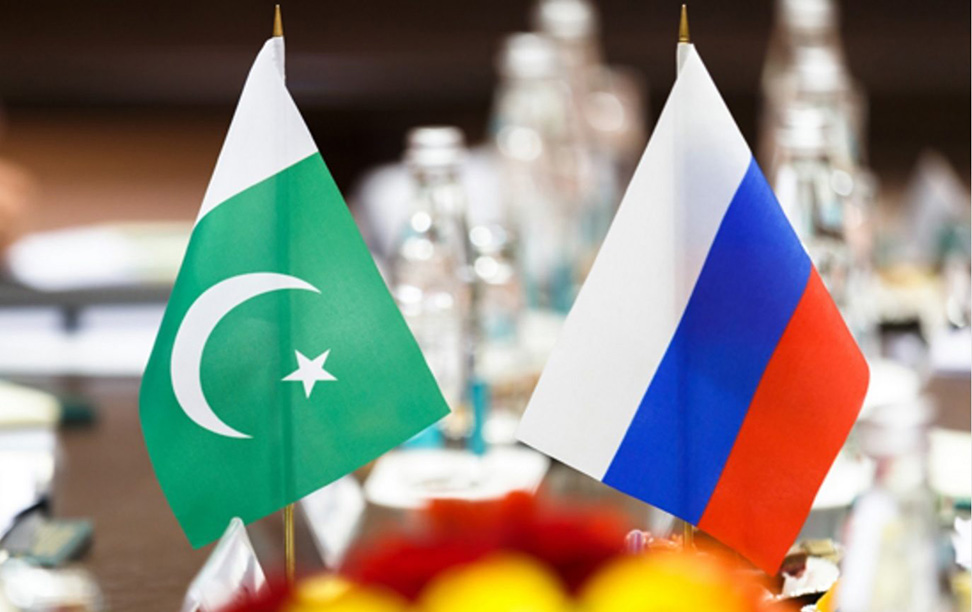Support Price Mayhem: Do what we say and not what we do

MG News | December 26, 2024 at 09:55 AM GMT+05:00
December 26, 2024 (MLN): In a badly managed political economy, losses emanating from bad management in one branch often cause the adoption of illogical and self-harming policies in another branch, which subsequently have consequences for the entire socio-economic structure, more or less exposing it yet more to future crisis.
The sequence has a feedback loop, i.e., bad management propagates worst management. In Pakistan, one such instance is the recent decision by the Government to do away with support prices for key agricultural commodities namely Sugarcane and Wheat.
The largest providers of subsidies in agricultural production are the United States, Europe, and Japan. The measure is often computed in the so-called “GDP terms”, to obfuscate the reality; showing somehow that smaller countries are the largest subsidizers.
Setting agricultural imperialism arguments aside, for no matter how realistically they represent the actual structure, these yet do not concern us here; existence of such subsidies however, have simple economic reasons: food dependence is the worst kind of socio-economic dependence and you only like others to have it.
Costs of subsidies aside, and cost arguments are worst to be lost by a poor nation, real socio-economic benefits directly confront any such costs.
To fool someone, however, show them the costs that are real and present out-of-pocket expenses, while dename the benefits or at least obscure them; argument is won presently! Such argument can never be won against a wealthy nation, so blame them on their wealth, a.k.a “affordability”.
Consider the Sugarcane sector in Pakistan for instance. It is being told to the people of Pakistan that the support price for sugarcane is wasteful and distortive of agricultural production. Reference is made to the low or high sugar prices and agricultural sector prosperity elsewhere in the world. Sugar Barons are named and defamed.
Free Markets mantra is told and retold including David Ricardo’s childish cloth-for-wine euphemism. And these are reasons presumed logical enough to rid of subsidies and let the free markets reign as if scientifically justified.
No one tells the people of Pakistan that when they build a farm-to-market road, or when they build a dam, or when they educate the farmers, or when they invest in water conservation technologies, these are also subsidies! Are such subsidies not warranted in a national socio-economic superstructure, especially when they concern the very object we consume?
Whenever someone mentions “free market”, you better ask them “free from what”? The answer shall be “free from government intervention”.
But all economies are planned in one way or another, and it is the government that better plan them, for any other planner is at best a capitalist, or one employed by a capitalist, not answerable to anyone else but to his own wallet or employer.
The gist of neoclassical so-called “economists” is to point towards the government inefficiencies and entice people to take the power of planning from the hands of the government and to give it away to someone else who is not answerable to them in the first place.
They do not motivate people to question and fix government inefficiencies in the first place; this does not serve their purpose. The real money is in their brand of treatment, not in prevention!
Ask yourself: could you travel from Karachi to Hyderabad without the government having spent something in the way of planning?
The so called Sugar Mafia is the result of the government inefficiencies and not the result of the support prices. Such Mafias are much more prevalent where there is no subsidy at all; say tax avoidance is not subsidized but observe our tax to GDP ratio! All such issues that plague the country also plague the sugar sector, but it is much easier to blame them on subsidy and not on the daylight of all inefficiencies combined.
The manifestation of abolishment of subsidies in Wheat and Sugarcane crops shall appear ever so clearly in the next crisis; crisis that shall test the power of producing our own staples, crisis that shall test availability of dollars to import staples, crisis that shall sunder the socio-economic fabric whose seams were exposed during the last 2 years.
And there is irony when you take bad decisions badly. Such as:
1. Let go of the support prices, under IMF directives, and not in an orderly manner under, say, a 5 years’ plan; rather let the support prices go immediately. The farmer is not able to comprehend and adjust his production dynamics say until over a couple of years. A Shock therapy!
2. Keep the retail sugar price fixed i.e., only accept half of the reality, or reality as dictated and reality not as the truth, but deferred truth. If the Sugar Mills cannot sell their production above a certain price, they shall also not buy the sugarcane above a certain price, no matter some government minister taking notice.
After a couple of years, the farmers shall abandon sugarcane production, starting with the worst-cost producers, and switch to some other cash crops. However, the best cost producers shall keep on selling at the rate of the marginal worst cost producers; there shall be no planned price equalizing force.
The government shall eventually be forced to let go of the retail sugar price because otherwise sugar mills shall start wrapping up their businesses, a phenomenon often seen in times of crisis in the spinning mills of Punjab.
But what other crops have such mass market, to which the farmers could switch, competitively? Probably the ones that have an export market, implying that the entire “freed” agricultural production shall switch to an export oriented monoculture.
Those who keep a closer eye on the agricultural sector know of one such produce recently propping up on large tracts of prime agricultural land: Rhodes grass; a cattle fattening grass that is exported to the Arabian countries. That is a vivid example of a poor country exporting a simple commodity used elsewhere to produce value-added food products.
Imagine imposing dictated policies yielding a deficit in your basic food staples, no matter if they generate an equivalent export surplus in monocultures. Food security is not provided by individual farmers, each imagined to be working in their own best interest and yet working in the best interest of the Nation as a whole – a practical joke; a central planner provides it; the Government, spending with the right hand and collecting with the left – a calculus not obvious on the surface and not in the best interest of those who want to subject us to a shock therapy in their larger scheme of arranging the affairs of the poor countries, to keep them low-cost suppliers of raw materials including cheap labor.
Food security is not taken as a given under just any policy, but under a very specific set of policies – otherwise, it is just a myth, and such policies are in place elsewhere in countries that know how to dominate the world’s food production.
The irony of being indebted is that the creditors decide what you do and that is often what creditors do not do themselves.
Copyright Mettis Link News
Related News
| Name | Price/Vol | %Chg/NChg |
|---|---|---|
| KSE100 | 134,299.77 290.06M |
0.39% 517.42 |
| ALLSHR | 84,018.16 764.12M |
0.48% 402.35 |
| KSE30 | 40,814.29 132.59M |
0.33% 132.52 |
| KMI30 | 192,589.16 116.24M |
0.49% 948.28 |
| KMIALLSHR | 56,072.25 387.69M |
0.32% 180.74 |
| BKTi | 36,971.75 19.46M |
-0.05% -16.94 |
| OGTi | 28,240.28 6.19M |
0.21% 58.78 |
| Symbol | Bid/Ask | High/Low |
|---|
| Name | Last | High/Low | Chg/%Chg |
|---|---|---|---|
| BITCOIN FUTURES | 118,140.00 | 119,450.00 115,635.00 |
4270.00 3.75% |
| BRENT CRUDE | 70.63 | 70.71 68.55 |
1.99 2.90% |
| RICHARDS BAY COAL MONTHLY | 97.50 | 0.00 0.00 |
1.10 1.14% |
| ROTTERDAM COAL MONTHLY | 108.75 | 108.75 108.75 |
0.40 0.37% |
| USD RBD PALM OLEIN | 998.50 | 998.50 998.50 |
0.00 0.00% |
| CRUDE OIL - WTI | 68.75 | 68.77 66.50 |
2.18 3.27% |
| SUGAR #11 WORLD | 16.56 | 16.60 16.20 |
0.30 1.85% |
Chart of the Day
Latest News
Top 5 things to watch in this week
Pakistan Stock Movers
| Name | Last | Chg/%Chg |
|---|
| Name | Last | Chg/%Chg |
|---|



